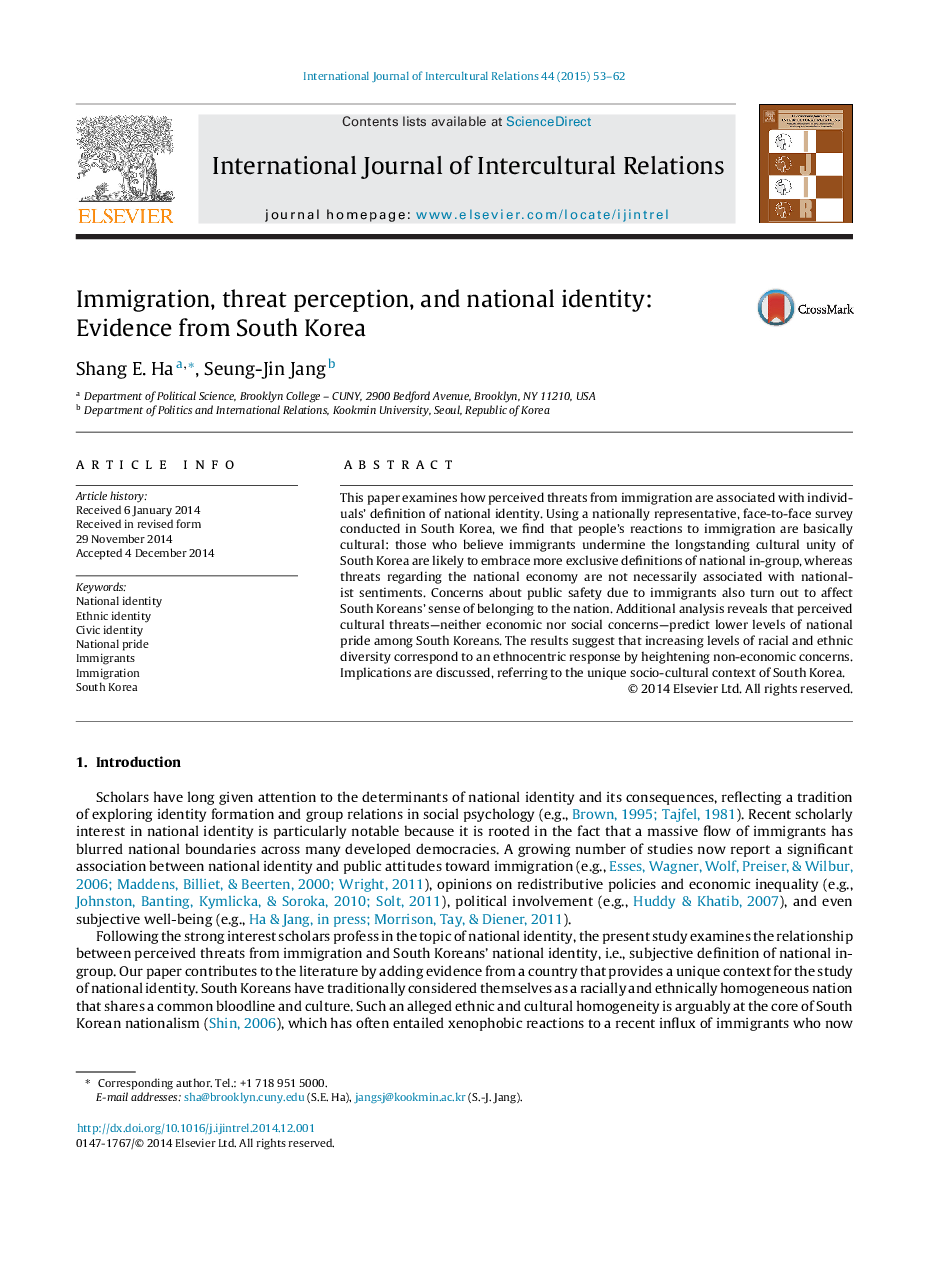| Article ID | Journal | Published Year | Pages | File Type |
|---|---|---|---|---|
| 947049 | International Journal of Intercultural Relations | 2015 | 10 Pages |
This paper examines how perceived threats from immigration are associated with individuals’ definition of national identity. Using a nationally representative, face-to-face survey conducted in South Korea, we find that people's reactions to immigration are basically cultural: those who believe immigrants undermine the longstanding cultural unity of South Korea are likely to embrace more exclusive definitions of national in-group, whereas threats regarding the national economy are not necessarily associated with nationalist sentiments. Concerns about public safety due to immigrants also turn out to affect South Koreans’ sense of belonging to the nation. Additional analysis reveals that perceived cultural threats—neither economic nor social concerns—predict lower levels of national pride among South Koreans. The results suggest that increasing levels of racial and ethnic diversity correspond to an ethnocentric response by heightening non-economic concerns. Implications are discussed, referring to the unique socio-cultural context of South Korea.
